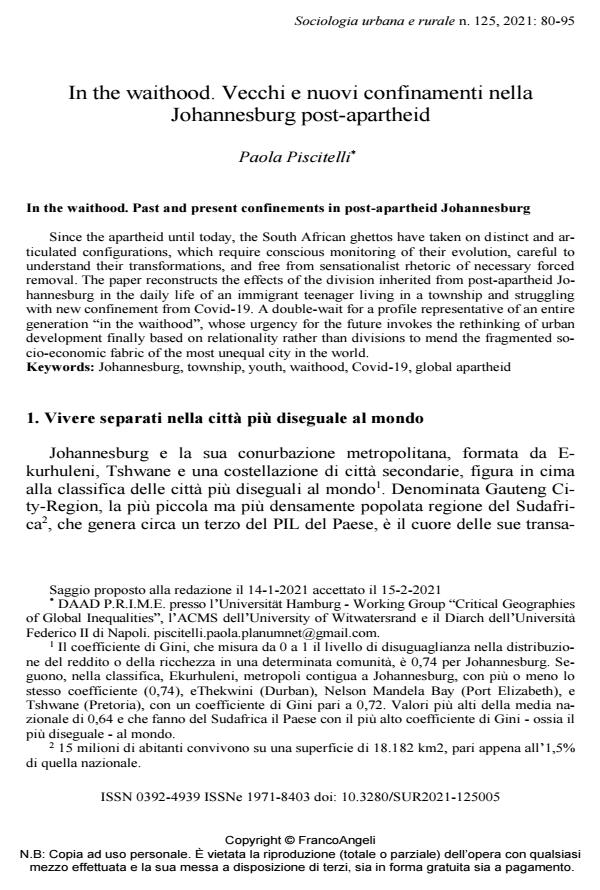In the waithood. Past and present confinements in post-apartheid Johannesburg
Journal title SOCIOLOGIA URBANA E RURALE
Author/s Paola Piscitelli
Publishing Year 2021 Issue 2021/125
Language Italian Pages 16 P. 80-95 File size 423 KB
DOI 10.3280/SUR2021-125005
DOI is like a bar code for intellectual property: to have more infomation
click here
Below, you can see the article first page
If you want to buy this article in PDF format, you can do it, following the instructions to buy download credits

FrancoAngeli is member of Publishers International Linking Association, Inc (PILA), a not-for-profit association which run the CrossRef service enabling links to and from online scholarly content.
Since the apartheid until today, the South African ghettos have taken on distinct and ar-ticulated configurations, which require conscious monitoring of their evolution, careful to understand their transformations, and free from sensationalist rhetoric of necessary forced removal. The paper reconstructs the effects of the division inherited from post-apartheid Jo-hannesburg in the daily life of an immigrant teenager living in a township and struggling with new confinement from Covid-19. A double-wait for a profile representative of an entire generation "in the waithood", whose urgency for the future invokes the rethinking of urban development finally based on relationality rather than divisions to mend the fragmented socio-economic fabric of the most unequal city in the world.
Keywords: Johannesburg, township, youth, waithood, Covid-19, global apartheid
Paola Piscitelli, In the waithood. Vecchi e nuovi confinamenti nella Johannesburg post-apartheid in "SOCIOLOGIA URBANA E RURALE" 125/2021, pp 80-95, DOI: 10.3280/SUR2021-125005